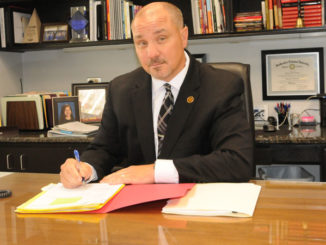
By Stephen Waguespack
How much stock do you put in rankings?
There isn’t much we do as a society that we don’t like to rank. The Weekly Top 40 has told us for three decades which song is most popular in the country. Every college football season there is robust debate between passionate fanbases about the college football rankings. Each year our favorite magazines and newspapers rank the best local restaurants and other businesses, giving us guidance on where to eat and shop. If you want to know where to find the best burger, beer or Buick, then a ranking is just one Google search away to give you some guidance.
Reporters and policymakers often use rankings to tell a story about our society. Media reports about a poll or ranking are quite common and usually follow a familiar outline. The supporter of the ranking will explain how it accurately describes where people stand on the issue, and then the opponent will state why the poll or ranking is irrelevant. There isn’t a ranking or poll discussed that doesn’t always have an argument from the other side. It comes with the territory, and the reader decides what is most persuasive to them.
Some rankings are just so persuasive that they are hard to refute and the opponents come across looking silly for even trying.
For instance, according to the National Assessment of Educational Progress, Louisiana ties for last place in teaching fourth grade math, and ties at 48th in the teaching of both fourth and eighth grade math and reading. Whether you agree with the rankings or not, it is obvious we are one of the worst states statistically for teaching math and reading to our kids. Additionally, the Program for International Student Assessment says the United States ranks 17th amongst industrialized nations for teaching reading. The takeaway is obvious: we are one of the worst states at teaching reading in a country that is middle of the road at best amongst its global peers. An American Management Association survey recently stated that 80 percent of the jobs of tomorrow would require workers to be proficient in reading and critical thinking. Therefore, it is a no-brainer that we must solve this problem so we can succeed in the global economy. Keep this in mind next time you hear someone argue that more money and more of the same are the only two things we need to do to improve our educational system.
Another ranking is The Judicial Hellhole® report that came out this week saying our state’s legal climate is the second worst in the country, trailing only that bastion of responsible government, California. The opponents have already come out in full force, saying the ranking has this flaw or that flaw. Common sense tells us otherwise.In the past year, we have seen a few entrepreneurial trial lawyers become more aggressive in their approach and they have taken their sales pitch on the road. School boards, levee boards, pension boards, parish councils and any other entity sitting on public money probably have this crew in their waiting rooms as we speak.
The sales pitch is slick and well-rehearsed. For no money down, these pied pipers promise trails of big dollars and claim they play the only music that can make it all happen. Some of our fellow citizens are ignoring the fine print, falling for the alluring tune and joining the parade. The problem is that the nation’s investors and job creators are also taking note of this tune and it makes them want to stay far, far away.
The Judicial Hellhole® report accurately reflects the reputation of Louisiana’s climate, a self-inflicted reputation that is only getting worse thanks to the actions of a few. Our national reputation is long-held, persuasive and discouraging investment in our state. This reputation will not go away until we change our tune, stand together and improve our laws. In fact, this should rank at the top of our to-do list.




Be the first to comment